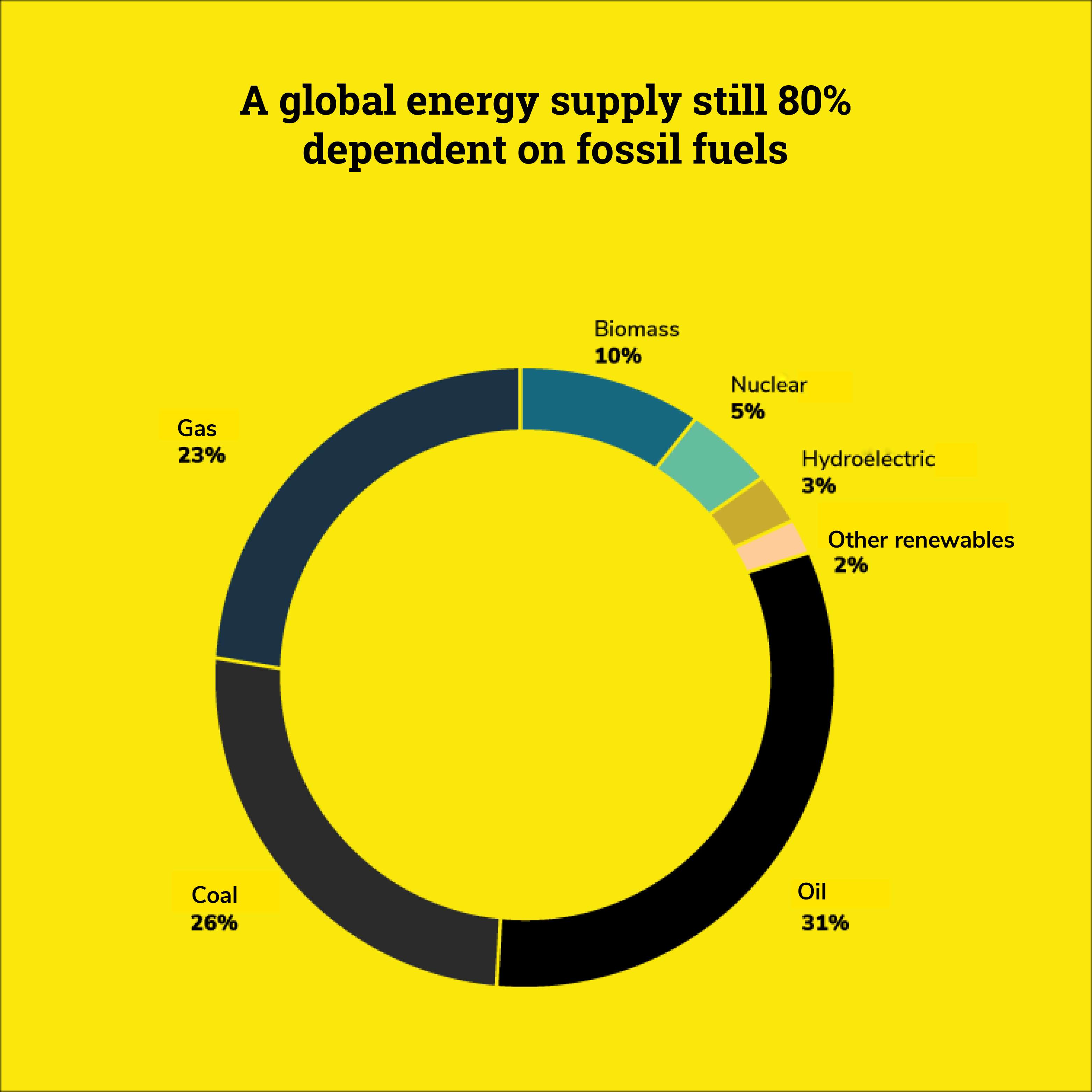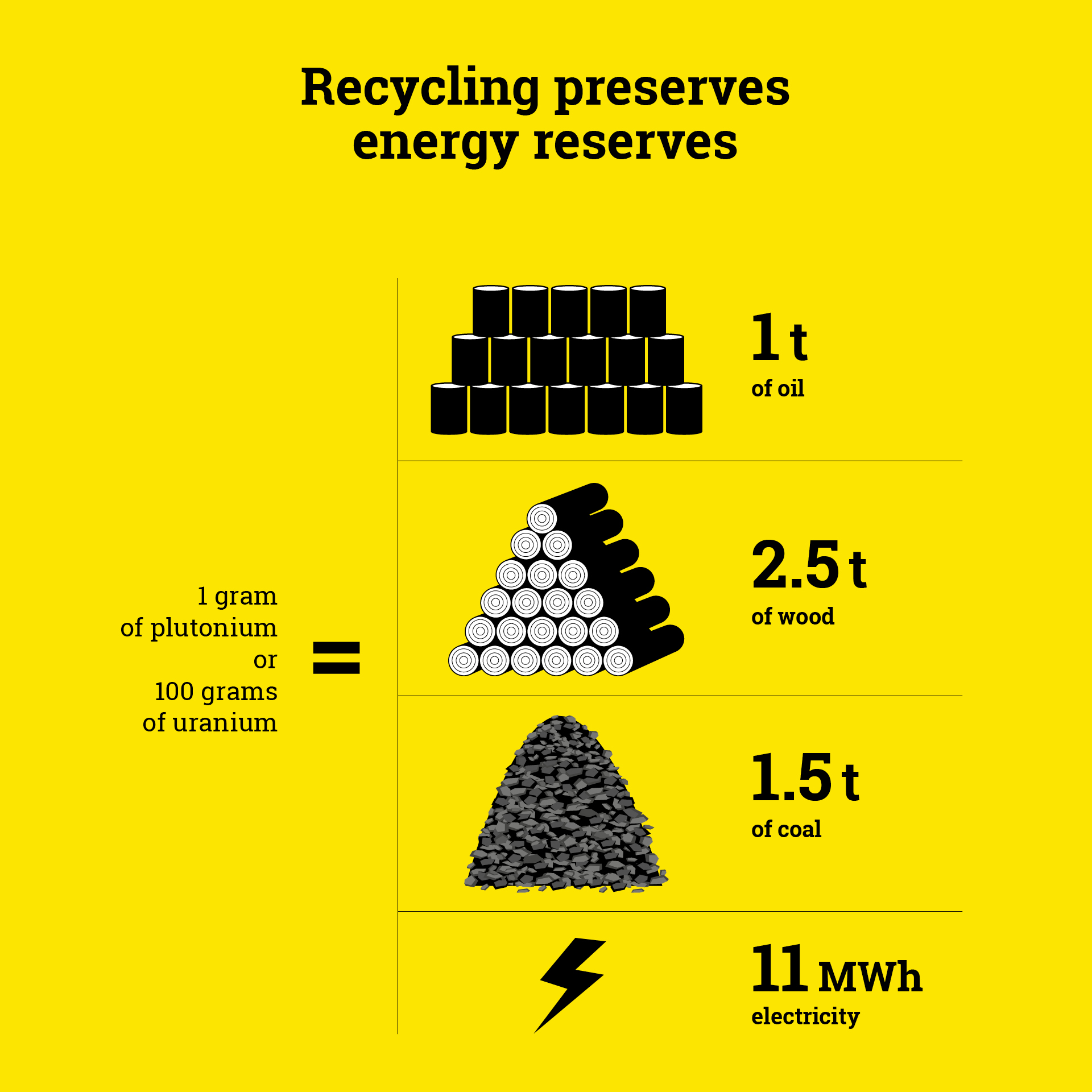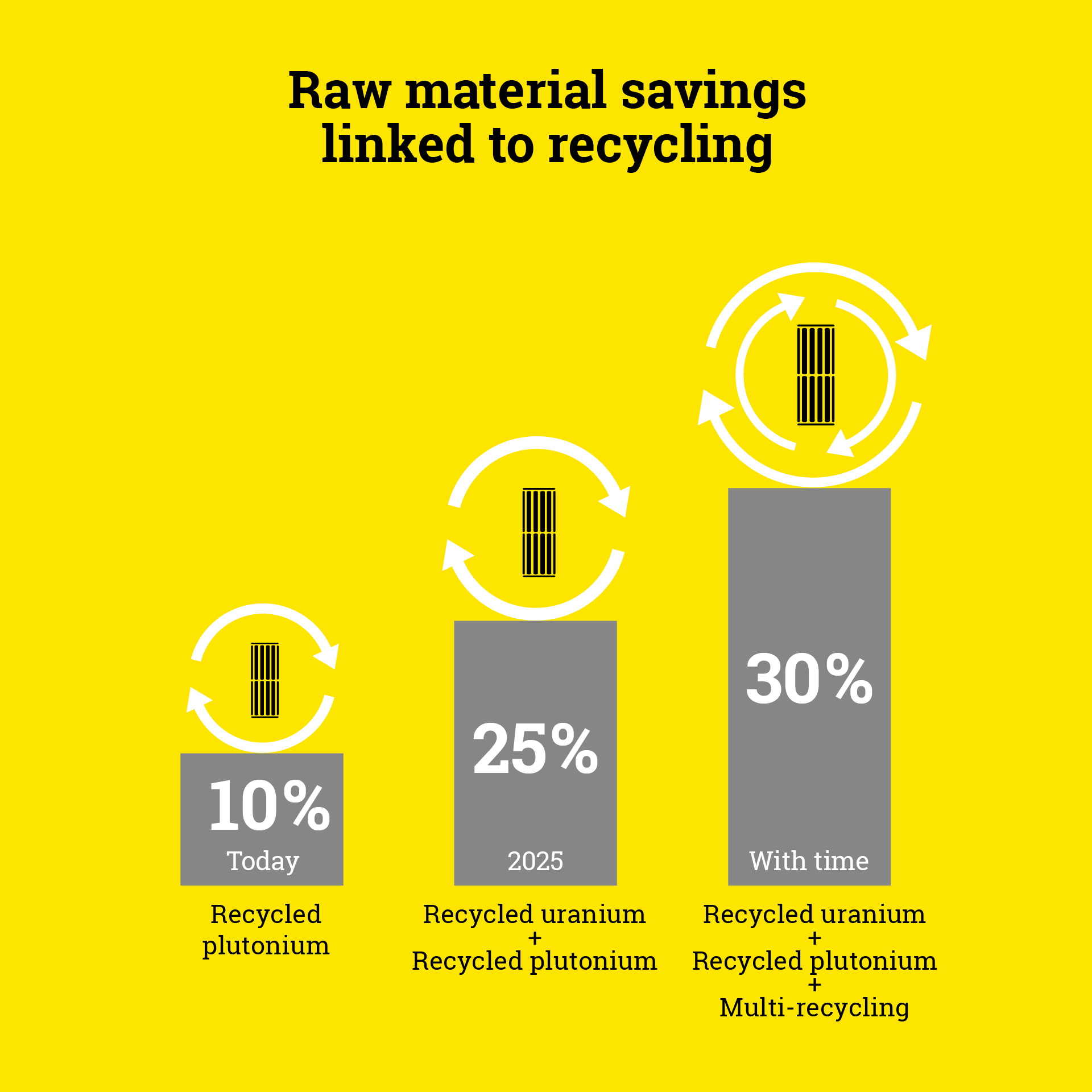
What does acting for the climate mean?
# 1 Combat the rise in temperatures
According to the most pessimistic scenario, the increase in the average global temperature of the planet could reach 6 °C to 7 °C in 2100.
The IPCC* simulations are conclusive, 90 researchers from around the world have confirmed these figures; to keep global warming down to less than 2 °C and to keep our planet viable for us, in all scenarios the use of nuclear energy is essential even if it is not the only solution.
*Intergovernmental Panel on Climate Change
# 2 Produce and supply low-carbon energy
Fact :
- 40% of global CO2 emissions in the world come from the combustion of fossil fuels (oil, gas and coal) to produce electricity.
- The world's primary energy supply is still 80% dependent on fossil fuels

Source : IEA 2018 IEA – International Energy Agency
- We must avoid the emission of 20 billion tons of CO2 to be able to contain the rise in temperatures to 2 °C (target of the Paris Climate Agreement).
Decarbonizing electricity generation is an essential component of effective greenhouse gas (GHG) mitigation strategies. Climate scientists recommend increasing the share of low-carbon energies for power generation from 30% to over 80% by 2050.
By low-carbon energies we mean those that produce little greenhouse gas, such as nuclear and renewable energies (solar, wind, hydraulic); these are unlike the so-called carbon-based energies (oil, gas, coal) which are fossil fuels and which, therefore, produce CO2 emissions during their combustion.

# 3 Preserve the planet's resources
Over 50 years ago, the nuclear industry was one of the first to introduce recycling by processing spent fuel in order to reduce the volume of waste and save raw materials. Nuclear materials have a strong energy potential. Remember 100g of uranium produces as much energy as one ton of oil.

Natural resources are not infinite. Orano is convinced that the recycling of nuclear materials is a responsible and sustainable way to go in a circular economy. Recycling spent fuel makes possible the reuse of nuclear material to produce electricity again.10% % of the electricity produced in France from nuclear power comes from recycled materials. This percentage will eventually rise to 30% with the recycling of uranium and multi-recycling, thus accelerating the drive to economize on raw materials.

# 4 Enable everyone to access clean and affordable electricity
Electricity is an essential good, its cost must remain affordable. Most studies estimate that electricity consumption will double by 2050, taking into account the growth of the world's population, and the rise of emerging countries. Today 1 billion individuals still do not have access to electricity. New uses, such as electric vehicles, will reinforce this development. This challenge must be met while drastically reducing CO2 emissions.
Nuclear power provides affordable, continuous electricity to homes, businesses, hospitals and transport systems around the world to improve people's daily lives, without harming the climate and the environment.
# 5 Achieve the goal of carbon neutrality by 2050
To contain the rise in temperatures to 1.5 °C, many countries including France have committed to achieving the goal of "0 net GHG emissions" by 2050. Carbon neutrality or “Zero CO2” does not mean the elimination of greenhouse gas emissions. It is the balance between CO2 emissions and the absorption of CO2 in the atmosphere by carbon sinks.
The challenge of carbon neutrality is immense, imposing drastic reductions in greenhouse gas (GHG) emissions produced by fossil fuels (coal, oil, natural gas), particularly in the sectors that produce and consume energy. It is about sourcing 80% of the fossil fuel energy used by mankind from low-carbon forms of energy. In short, to switch the world’s 7 billion people to low carbon energies in under 3 decades!
- Nuclear energy and climate challenges The capacity of nuclear energy to guarantee low-carbon electricity generation is invaluable to deal with the climate emergency
- Nuclear and renewables: the solution for the climate With a view to shifting to low-carbon energies, an energy mix combining nuclear and renewable energies looks to be THE solution for the climate.
- 7 good reasons for turning to nuclear power to combat global warming Nuclear energy presents many advantages in the current context of the fight against global warming: discover 7 good reasons to capitalize on this form of energy.